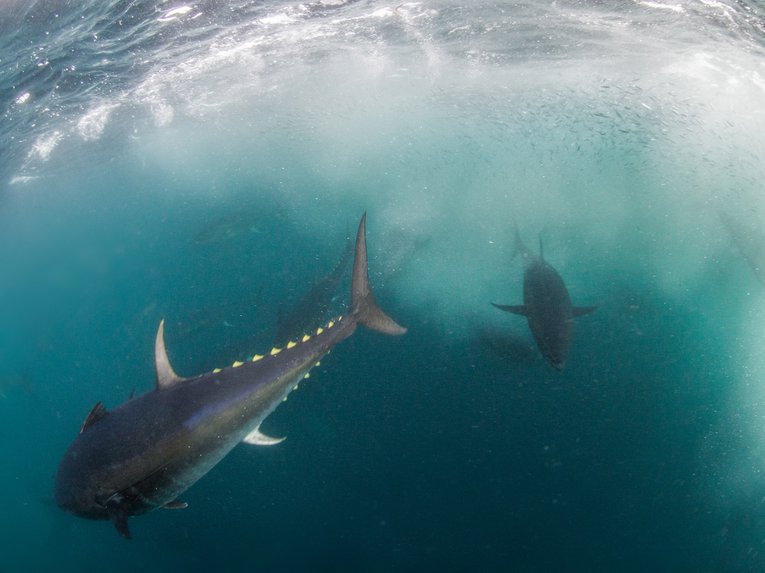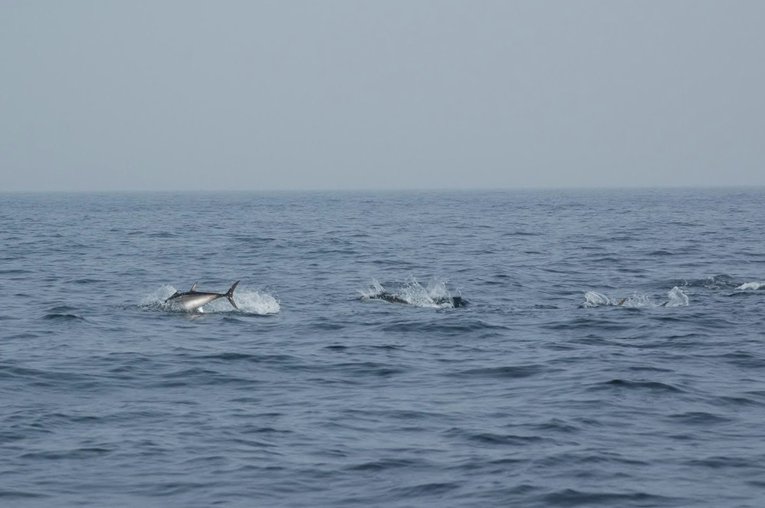
Bluefin tuna: An ocean giant on the rise
As the population of bluefin tuna experiences a heartening resurgence, a new set of challenges are beginning to appear on the horizon.
To see our waters bubbling with shoals of Atlantic bluefin tuna (Thunnus thynnus) is not a new sight in the UK, but one that had been consigned to the history books until relatively recently.
In the 1930s, a world-renowned recreational bluefin tuna fishery in the North Sea drew large numbers of aristocratic fishers to places such as Scarborough and Whitby, until its collapse in the 1950s. By this time, sightings of bluefin tuna had become sporadic, and had all but disappeared from UK waters by the 1990s.

Credit: Mark Kirkland
In 2007, when bluefin tuna stocks were close to collapse, the International Commission for the Conservation of Atlantic Tunas (ICCAT) launched a 15-year recovery plan for the species. This was a significant step in the revival of tuna populations.
Within three years, numbers of bluefin tuna in the Eastern Atlantic began to increase, and after a 20-year absence, occasional sightings were once again being reported off UK and Irish shores. Tuna are now regularly seen in UK waters, with the majority spotted in Cornwall, Devon, the Isles of Scilly, and Ireland.
Numbers of Atlantic bluefin tuna are increasing year on year, and in 2021 the species was removed from the list of Endangered species on the IUCN Red List and reclassified to a species of Least Concern. It was also removed from our Good Fish Guide red rated Fish to Avoid list and rated amber for the first time.

Credit: Lucy Hawkes, University of Exeter
The recovery of bluefin tuna and its return to UK waters is no doubt a success story to be celebrated, and a positive outcome for a once-depleted stock. However, it’s not yet clear if populations have reached sustainable levels that can withstand increases in commercial fishing pressure.
The introduction of tuna fisheries may cause the UK’s stocks to be exploited too quickly, especially if management is deemed insufficient to avoid a free for all at sea.
To ensure bluefin tuna continues to visit the UK and thrives here, we need effective management and careful, tentative steps to prevent unsustainable fishing pressure. Seeing a shoal of bluefin tuna is a truly unforgettable experience and we must do everything we can to support their recovery and not let history repeat itself through another untimely demise.


